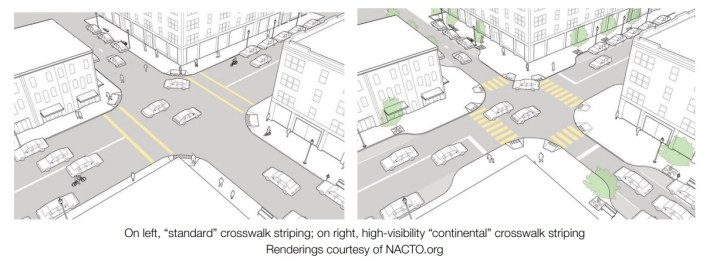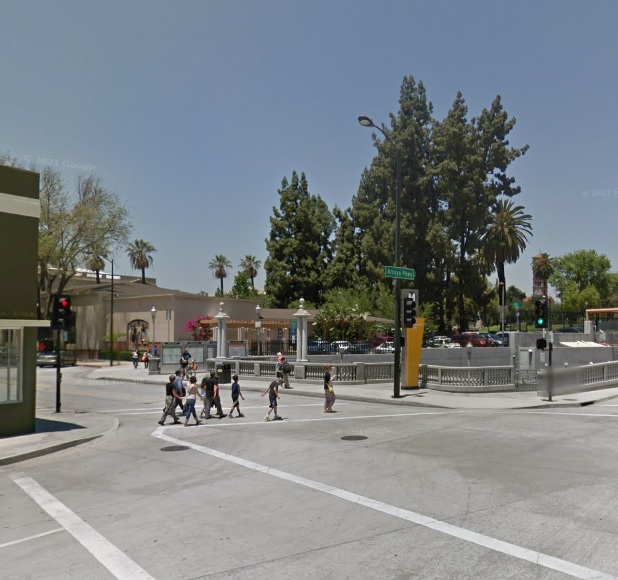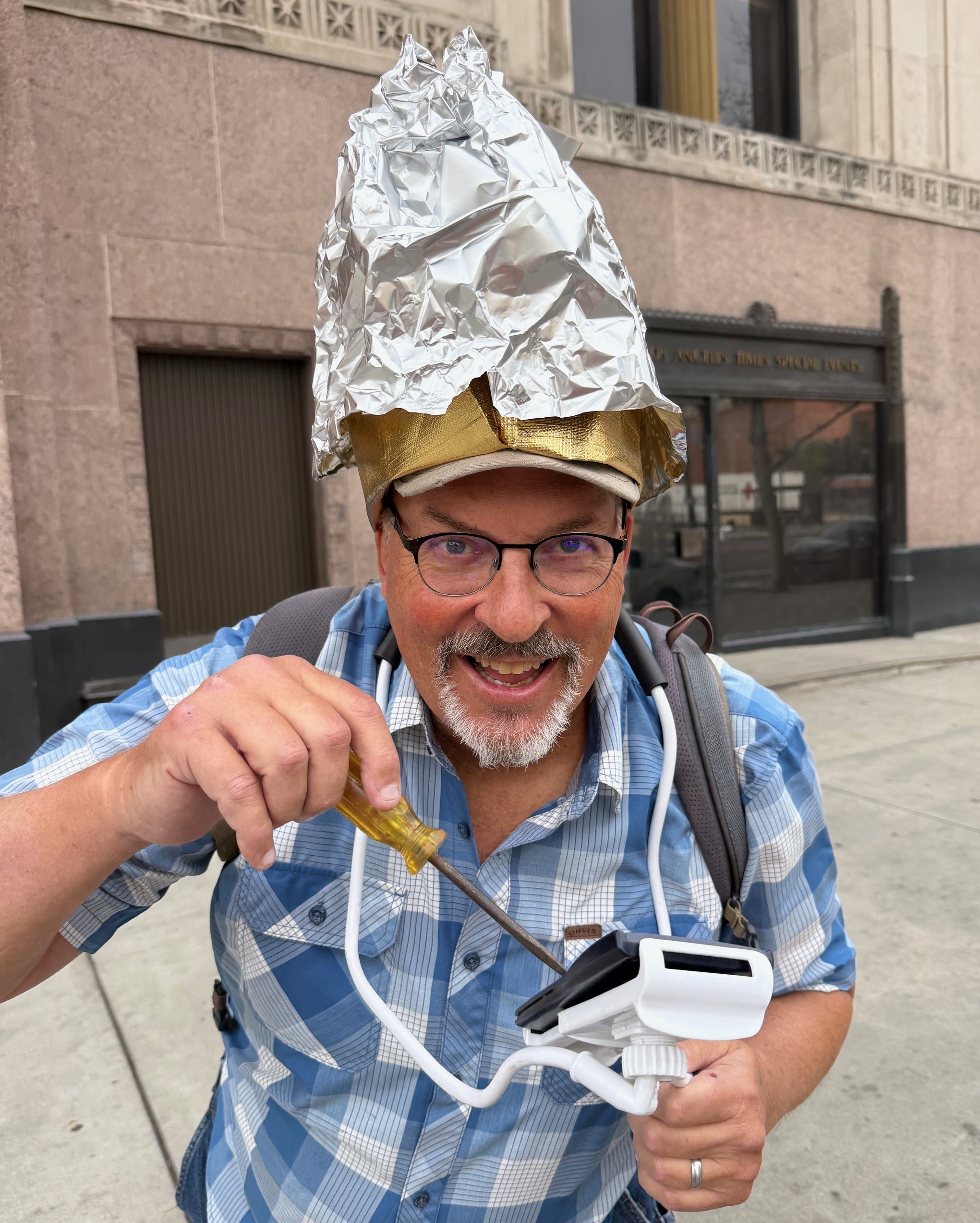Earlier this week, the Metro board Planning and Programming Committee approved staff recommendations [staff report] to reprogram some North 710 Freeway funding toward multimodal projects, as requested by the cities of Pasadena and Monterey Park. Unfortunately the committee rejected some commonsense pedestrian safety upgrades proposed by Pasadena. Advocates are hoping that the Metro board will overturn the short-sighted staff recommendations when the full board meets next week.
This is the latest skirmish in a long-running and lopsided war of attrition where Metro highways staff repeatedly insist on car capacity projects at the expense of transit, walking, bicycling, equity, and safety.
What led up to this? In 2017, Metro canceled its $6+ billion North 710 Freeway tunnels project, directing the project's remaining ~$780 million budget be used “for multimodal and safety enhancement projects” on surface streets in N. 710 corridor cities instead. In 2018 and 2019, Metro highway staff steered opaque selection processes that funded primarily car-centric projects. Several N. 710 corridor cities (Alhambra, Monterey Park, Pasadena, San Gabriel, and San Marino) later rejected road capacity projects favored by Metro. In 2022, County Supervisor Hilda Solis shepherded approval of a Metro policy that re-reaffirmed N. 710 funds can and should go toward multimodal projects, and invited cities to revise or replace former N. 710 project plans.
Pasadena is the main city to take advantage of Metro reaffirming its support for multimodal projects. Pasadena had initially obtained $230 million in N. 710 funding for a California Boulevard Gold Line grade separation. When that project was canceled, Pasadena submitted a revised project list to Metro (in September 2022), requesting funding for freeway ramp removal, transit operations, complete streets, a traffic circle, bikeways, and crosswalks. More on those crosswalks below.
Metro had previously approved $230 million for Pasadena's canceled project. This week, Metro only approved $181 million in replacement projects, delaying Pasadena's remaining $50 million. Pasadena had requested multimodal project funding totaling ~$400 million, but Metro staff rejected most of Pasadena's list.

Among the Pasadena projects Metro staff rejected was $6.8 million to install continental (aka zebra) crosswalks at more than 100 intersections in the N. 710 stub area. Safe streets advocates mobilized in support of Pasadena's request. A joint letter from sixteen community groups urged the Metro board to support pedestrian safety "by funding Pasadena’s request to implement new, high-visibility, continental crosswalks at 100 intersections." The letter also makes the point that, beyond just Pasadena, Metro should support these sorts of valid pedestrian safety projects in any N. 710 corridor cities that seek them.
At the committee meeting [video, starting at minute 4:30], Solis expressed her continued support for multimodal projects and questioned why staff recommended against so many of Pasadena's projects. Metro Chief Planning Officer James de la Loza stammered through a vague response, "As proposed, uh, this project [sic], uhhh, did not, uh, fully meet the guidelines." Metro Senior Director Michelle Smith further asserted "staff was less inclined to recommend concepts and scopes that are still being developed." Both Smith and de la Loza noted that cities could come back again later.
Note that Pasadena has been asking for multimodal N. 710 project funding since 2018 - to which Metro highway staff keeps telling them to come back later.
Also note that Metro has been throwing N. 710 funding at cities for vaguely scoped car-centric projects (some of which were later found to be infeasible) since 2018, but Metro staff are now applying an undefined higher standard for Pasadena pedestrian safety projects.
Despite Solis continuing to express support for multimodal projects, the committee approved the staff recommendation to fund just $181 million worth of Pasadena projects, indefinitely delaying $50 million worth of the city's N. 710 funding.
ActiveSGV Special Programs Director Wes Reutimann let Streetsblog know that the coalition of groups that submitted the comment letter are urging the Metro board to confirm that crosswalk and pedestrian safety improvements are an eligible and meaningful use for N. 710 funds. Reutimann calls the zebra crosswalks "a simple, cost-effective step a community can take to improve road safety in the short-term" and notes that even "Metro's own Active Transportation Strategy Plan calls them a key component in supporting safe mobility."
Metro staff's excuse for not funding continental crosswalks - "concepts and scopes are still being developed" - doesn't hold water. What more "concept and scope" is needed to install safer crosswalks? Is Metro expecting some kind of further study before supporting safer crosswalks? Or is Metro highways staff, after repeatedly being told by its board and its CEO Stephanie Wiggins to support multimodal transportation, just continuing to drag its heels on projects that don't focus on increasing car capacity?
Metro's board and CEO have taken several needed steps to rein in the excesses of Metro highway staff. Next Thursday, they need to take one more small but meaningful step to demonstrate support for multimodal transportation and pedestrian safety - by fully funding Pasadena's safe crosswalks project.
Streetsblog’s San Gabriel Valley coverage is supported by Foothill Transit, offering car-free travel throughout the San Gabriel Valley with connections to the new Gold Line Stations across the Foothills and Commuter Express lines traveling into the heart of downtown L.A. To plan your trip, visit Foothill Transit. “Foothill Transit. Going Good Places.”
Sign-up for our SGV Connect Newsletter, coming to your inbox on Fridays!







